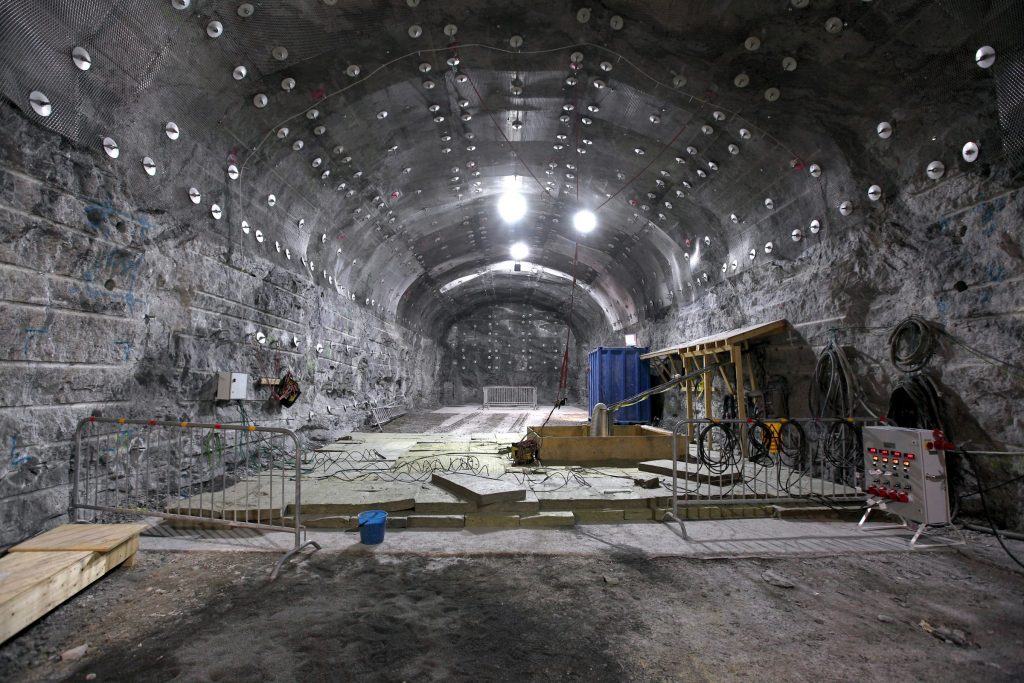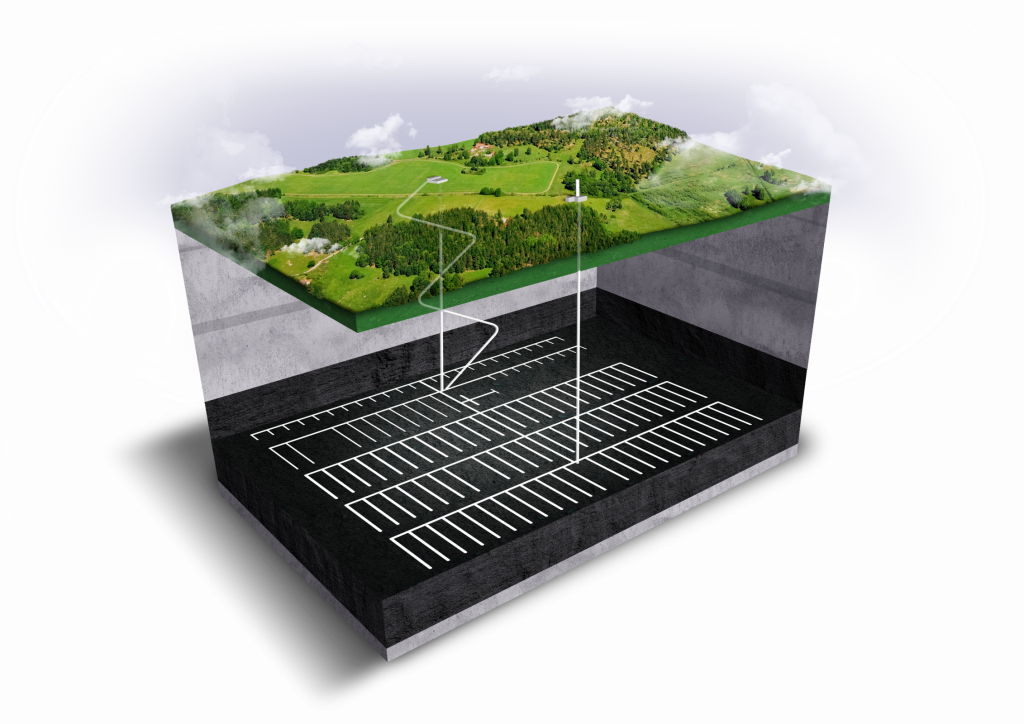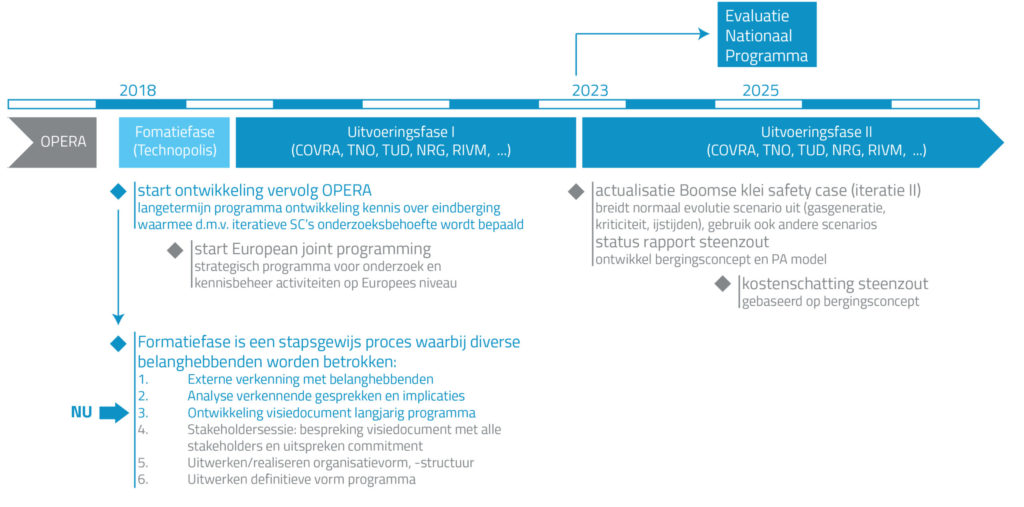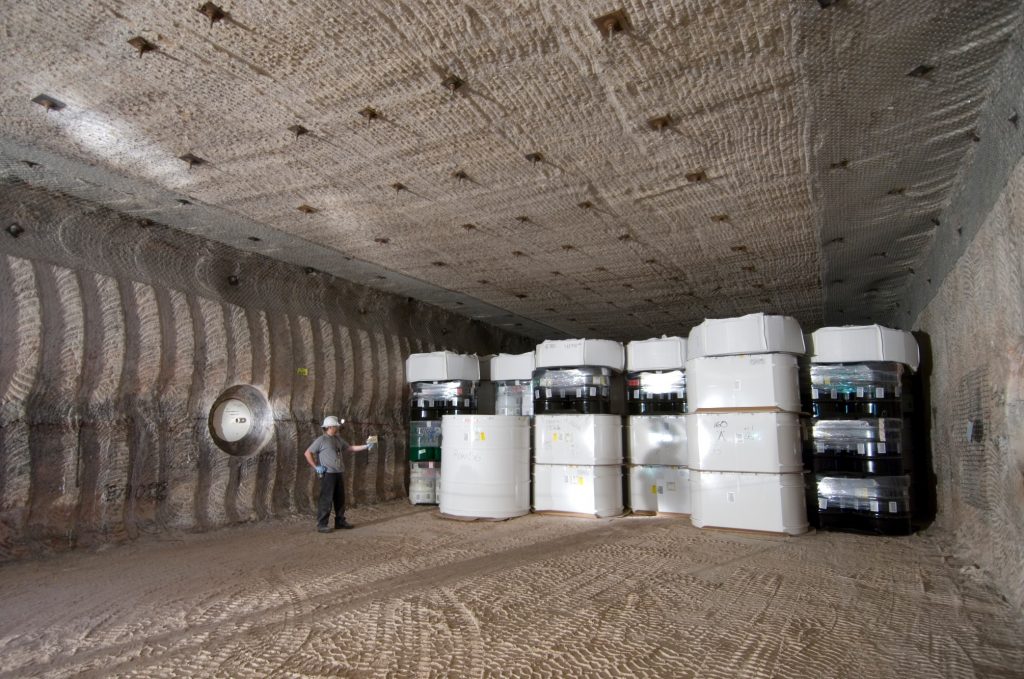The radioactive waste policy was determined in the 1984 Radioactive Waste policy document. Among other things this policy document lists the points of departure of the radioactive waste management (insulation and control) and opts for deep geological disposal. Radioactive waste is stored above ground in the Netherlands for at least 100 years. During this period research is conducted into options for the radioactive waste’s deep geological disposal. Initial research showed that the geological disposal of radioactive waste in suitable rock formations found in the Netherlands in the deep underground (salt and clay formations) was feasible. Both types of formation have been established to remain geologically stable for many years and to be thereby suitable for the insulation of radioactive waste for thousands of years. Follow-up research, including the research programme OPERA, examined this in greater detail, particularly the option of creating a retrievable underground disposal facility for radioactive waste.
 Onkalo: the location where the Finnish business Possiva is realising a deep geological disposal repository
Onkalo: the location where the Finnish business Possiva is realising a deep geological disposal repository
OPERA
In the Research Programme for the Geological Disposal of Radioactive Waste, referred to as OPERA, meticulous research was conducted during a seven-year period into the way in which, in due course, radioactive waste can be disposed of in the Netherlands deep underground. The results of the research were published at the beginning of 2018.
Two important conclusions of OPERA are:
- All Dutch radioactive waste can be stored in deep clay layers. To this end a geological disposal concept has been developed based on an expected waste inventory for 2130, which is also flexible enough to respond to changes in time or waste supply. OPERA’s safety analyses indicate that at a well-chosen location with suitable geology, this concept offers a high degree of safety comparable with other national programmes and international standards.
- Although geological disposal has not been foreseen until 2130, we need to start building our knowledge about it now. In order to handle and profess waste in the present, and to make an as good as possible estimate of the money that currently needs to be saved to enable the financing of a geological disposal repository in the future, we need knowledge as regards to what will happen to the waste after one hundred years. For this purpose a long-term research programme is required.
OPERA has developed a comprehensive study, a safety case, for deep geological disposal. The recommendation is to refine the safety case by iteratively developing an increasingly specific and detailed disposal concept. In this way knowledge on geological disposal can be specifically further developed so that at around 2100 a well-considered decision can be taken on geological disposal.
 An artist’s impression of possible deep geological disposal in the Netherlands
An artist’s impression of possible deep geological disposal in the Netherlands
Follow-up research
COVRA is developing a follow-up research programme concerning deep geological disposal of radioactive waste. The first step in this process consisted of consultations between various parties with an interest in the geological disposal issue and research into this. These included the supervisory body [ANVS], the technical support organisations, the nuclear industry (waste producers) and research organisations. The consultations showed that all interested parties are favourably inclined towards COVRA’s initiative to develop a follow-up research programme on geological disposal and want to remain involved in the process. Based on the exploratory talks a vision for a long-term research programme was developed. The vision indicates the knowledge required in each period, and clarifies the short-term focus.
The following step will take place at the beginning of 2019. Based on in-depth talks with various stakeholders the vision will be assessed and where necessary, extended. The programme frameworks will be subsequently determined in a workshop with all interested parties. The aim is to come to an agreement on these frameworks and the commitment of the interested parties in the first half of 2019. Following this, the specific content and structure of the long-term research programme will be determined.

International
The study on geological disposal of radioactive waste does not just look at a geological disposal repository in the Netherlands but also the possibility of creating a geological disposal repository together with other countries. This could be in the Netherlands or abroad. At present, no underground geological disposal repository for long-lived high-level radioactive waste is in use in Europe. However, experiments are being conducted in underground testing laboratories to study the final disposal of waste in geologically stable rock layers. Finland, Sweden and France are engaged in concrete projects for the realisation of geological disposal repositories. These will be the first countries to put a national geological disposal repository for high-level radioactive waste into use. The first geological disposal of high-level radioactive waste in Europe is expected to take place around 2025. Since 1999 a deep underground disposal facility in salt beds in the United States has been used for all the country’s military radioactive waste.
 Waste Isolation Pilot Plant
Waste Isolation Pilot Plant